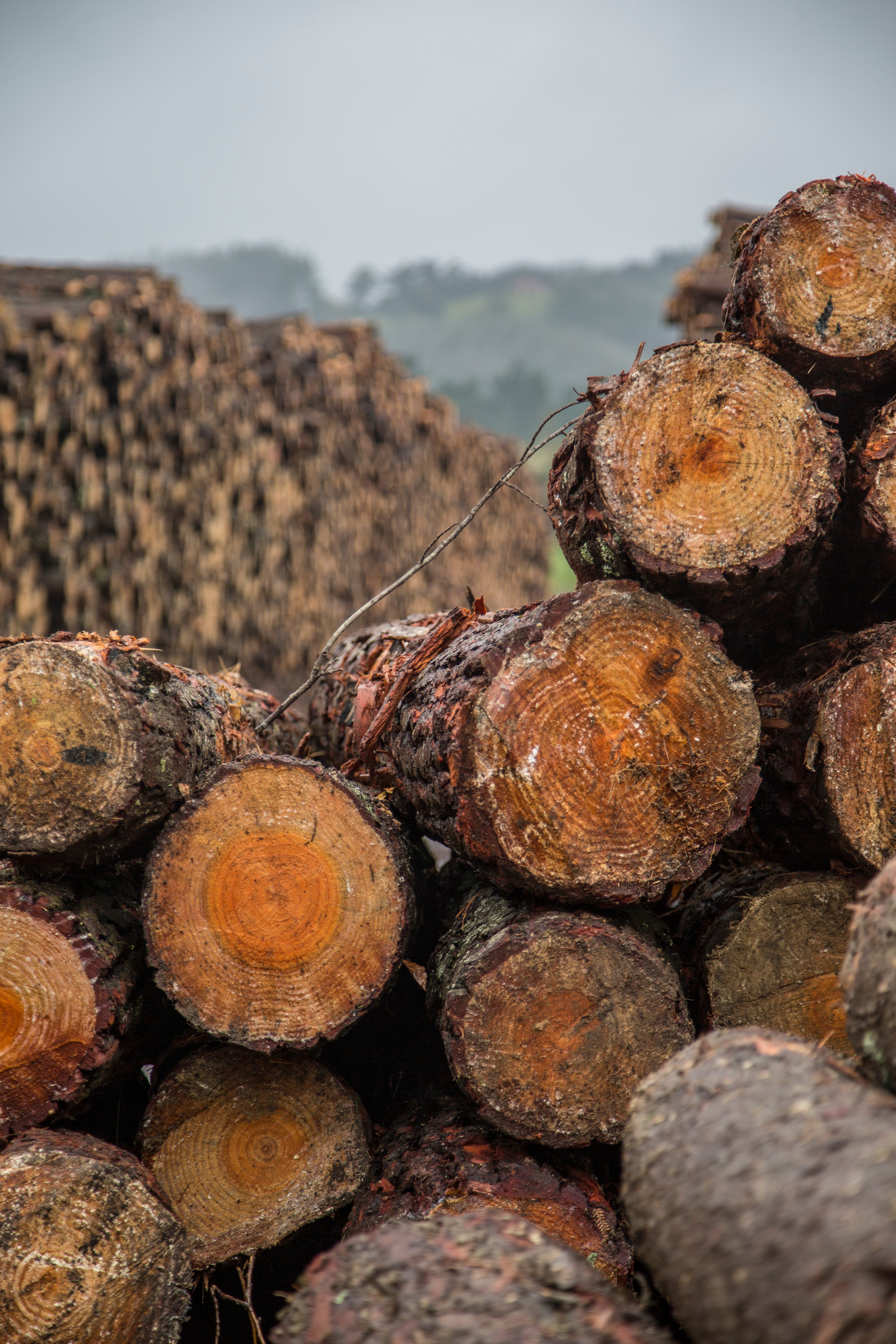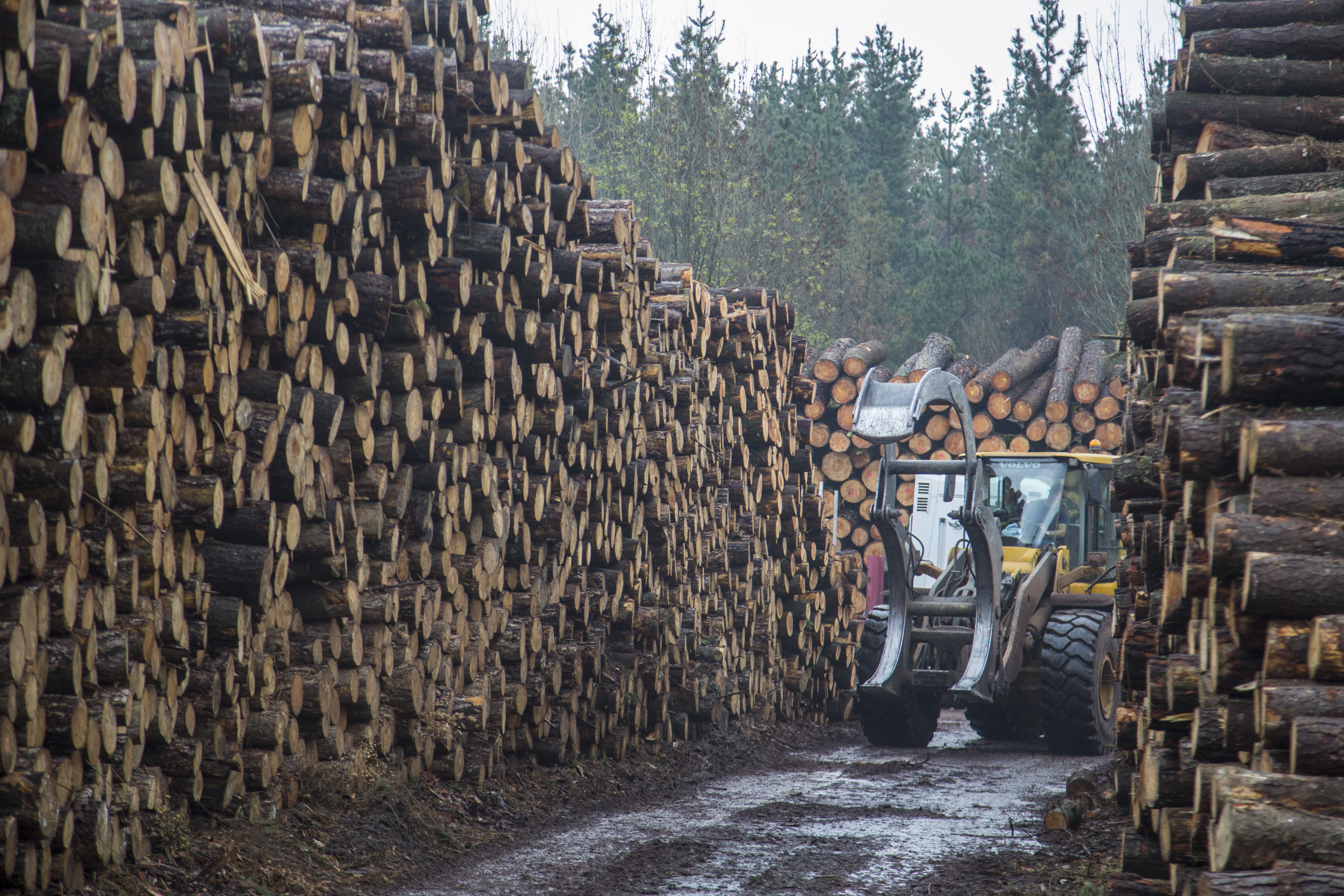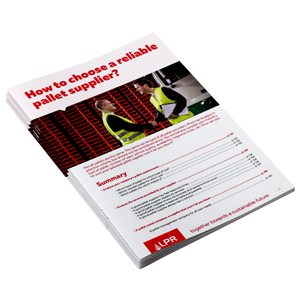Is it possible to produce wooden pallets that are environmentally friendly, ethically manufactured, and that stand the test of time?
This is the challenge we have taken on at LPR - La Palette Rouge.
In this article, discover the importance of defining a clear wood sourcing policy for your business and also learn about the environmental impact this approach can have on your supply chain.
Menu:
1 | Wooden pallets: wood sourcing is crucial
2 | Wood sourcing: Our 4 main pillars
3 | Incorporating your supply chain into an eco-responsible approach
1. Wooden pallets: wood sourcing is crucial
At LPR - La Palette Rouge, we want to work together towards a sustainable future.
Wood, a renewable material, is the main component of our pallets and offers unrivaled properties of strength and repairability.
However, we see beyond its purely technical qualities.
Above all, wood is an essential material for maintaining biodiversity.
We carefully consider the origins of all the wood we use to make our pallets and pay particular attention to the management of the forests that it comes from.
We are committed to responsible and sustainable wood sourcing throughout our entire supply chain.
Wood sourcing forms an integral part of our mission, and as a result it is essential to define a clear sourcing policy when choosing materials.
By doing the same you will be able to compare the various solutions on the market and to choose those that best correspond to the challenges of eco-responsibility and your own pre-existing commitments.
2. Wood sourcing: our 4 main pillars
2.1. The fight against unacceptable sourcing practices
Our desire to use only the best quality, ethically sourced wood goes hand in hand with the fight against unacceptable supply practices.
LPR – La Palette Rouge collaborates exclusively with suppliers and importers who are committed to working against:
-
illegal logging or trade in illegal timber/forest products,
-
the violation of traditional and human rights in forestry operations,
-
the destruction of high value conservation sites in forestry operations,
-
the significant conversion of forests into plantations or non-forest use,
-
the introduction of genetically modified organisms in forestry operations,
-
the violation of any of the fundamental ILO conventions.
To find out more information see the PEFC certification audit and control procedure.
2.2. Certification and accreditation that meets our requirements
LPR have held PEFC Chain of Custody certification since 2010 to ensure a sustainable future where logistics operations and the environment can coexist.
This certification provides independently verified assurance that the materials used in LPR’s pallets comes from sustainably managed forests.
All of our customers can be confident that the wooden pallets they receive fully respect the environment.
In addition, 100% of the wooden pallet manufacturers and wood suppliers that we work with for pallet repair are also PEFC® or FSC® certified, or will be within the first 3 years of the start of their business relationship with LPR.
Suppliers are required to deliver a percentage of certified wood that is as close to 100% as possible. This requirement is included in LPR's vendor selection and performance evaluation processes.
We only collaborate with businesses who share our values so that our actions are perpetuated, and as a result, we can have a more positive impact on the environment.
2.3. Controlling the geographic origins of wood
At LPR, we are committed to ensuring that 100% of the wood used to manufacture wooden pallets, and to repair them throughout their lifetime, is harvested within Europe.
Furthermore, the use of "conflict wood" in the manufacture or repair of LPR pallets is prohibited.
But what is “conflict wood”?
The PEFC framework (PEFC ST 2002:2020) defines it as "timber that has been traded at some point in the chain of custody by armed groups, whether rebel factions or regular soldiers, or by a civilian administration in an armed conflict or its representatives, either to perpetuate the conflict or to take advantage of conflict situations for personal gain”.
In other words, wood linked to political issues or ideologies that LPR does not support or align itself with.
2.4. The choice of transparency
At LPR - La Palette Rouge, we ensure that our suppliers provide transparency in their own supply chains.
Direct suppliers of LPR must map the movements of their goods from their source, through to their primary production level. (Forest Management Unit).
In order to control these uses, suppliers accept the intervention of a third party to ensure that their practices fall within the framework set up by PEFC certification.
Documentation relating to the origin of all wood materials used to manufacture LPR wood pallets, and to repair them throughout their lifetime, must be made available on request and retained by LPR suppliers for at least 5 years.
3. Incorporating your supply chain into an eco-responsible approach

3.1. Wood: a highly repairable material
Reducing the amount of waste generated by the supply chain is a challenge for all manufacturers.
Choosing a recyclable material is the first step towards minimising waste production and ensuring the preservation of non-renewable resources.
That is why wood, a material that can be repaired and reused many times, is a great solution to the problem.
Used wooden pallets can be salvaged for refurbishment or can be recycled when this is not possible.
3.2. Choosing a PEFC-certified wooden pallet: an eco-responsible commitment
As covered above, PEFC certification is an authentication that helps to ensure sustainable forest management and responsible wood supply.
The goal? To ensure a good balance between harvesting and planting, as well as between the needs of suppliers and wider ecosystem, issues such as:
-
the protection of watersheds,
-
prevention of soil erosion,
-
mitigation of climate change (forests are the second largest CO2 absorber).
PEFC certification allows companies to make their supply chain part of a more eco-responsible approach.
Choosing a PEFC-certified wooden pallet: the advantages.
Aside from the ethical commitment demonstrated by holders of PEFC certification, there are other advantages for companies:
-
Economic advantages: PEFC certification is a selling point in its own right. This certification allows companies to appeal to consumers who place environmental concerns at the heart of their purchasing decisions.
-
Social benefits: PEFC certification promotes the local economy, with a network of local suppliers that help meet the growing demand for more responsible consumption habits.
In addition, sustainable forestry management also provides new jobs and ensures an ethical working environment for employees.
-
Competitve advantage: the reusability of wood makes it possible to recirculate the materials necessary to keep the supply chain functioning.
In the case of wooden pallets, they can be reused many times and can undergo several rotations.
This avoids unnecessary production of additional pallets and preserves resources.
As a result, the supply chain remains productive and the costs related to pallet storage and purchasing new pallets are reduced.
Although PEFC wood is 3% more expensive that its non-certified counterpart, its technical and environmental advantages make it an essential raw material for manufacturers.
3.3. Continuous improvement: LPR is working to make supply chains more sustainable
At LPR, we are committed to improving the efficiency of circular supply chains.
We believe that we can only achieve sustainable growth by working together with our partners to find the best solutions.
Producing pallets of the highest quality is not enough, if production does not take into account the current challenges of the industry and logistics sectors:
-
reduce unnecessary waste in a Lean Management approach, and to reduce the carbon footprint of supply chains,
-
ensure rapid supply to respond in the best possible way to the unpredictability of the supply chain.
With this in mind, our teams work continuously to develop innovative solutions that offer the best experience to our customers.
____________
As discussed above, the choice of raw materials and components used for the manufacture of your products needs to be given due consideration.
You should include the lifespan of materials, as well as their life cycle, to ensure they can be recycled, reused or disposed of in an environmentally friendly manner.
Finally, more than the raw material itself, it is vital to define a sourcing policy for your materials, in accordance with your own environmental commitments.
At LPR, we have chosen to place eco-responsibility at the heart of our approach and that is why we check the origin of the wood contained in our pallets on a daily basis.
Do you want to help build a sustainable future with us?
Choose LPR’s wooden pallets to transport your goods, ensure proper functionality of your supply chain, and put sustainability at the heart of your operation.



